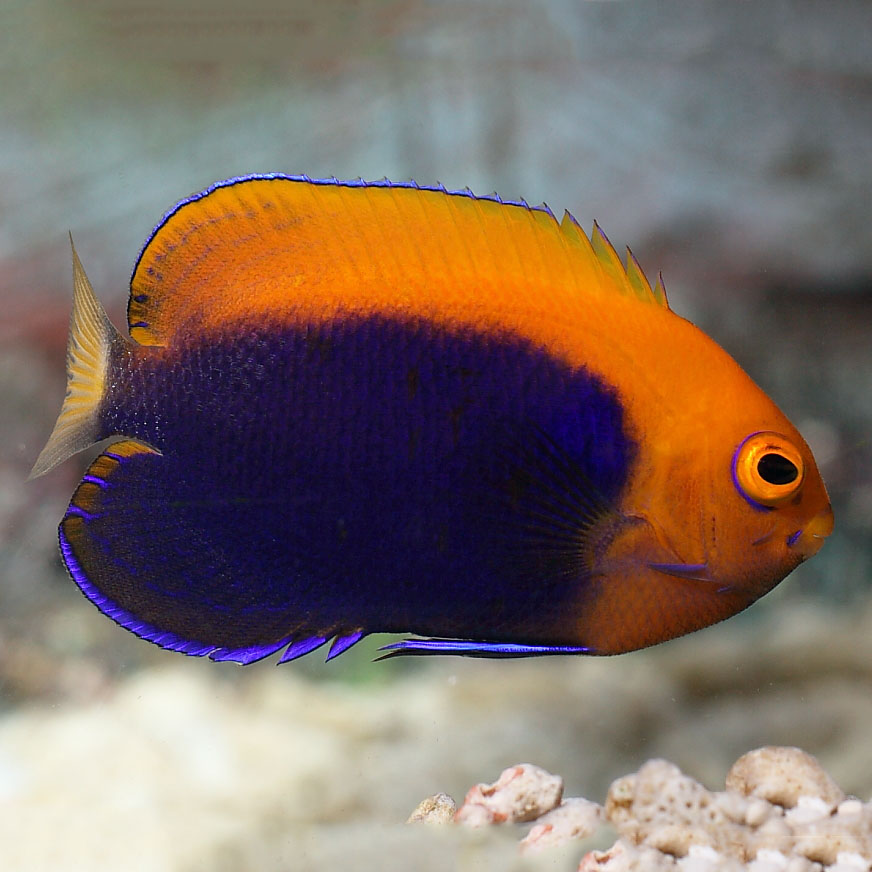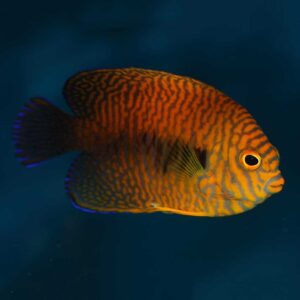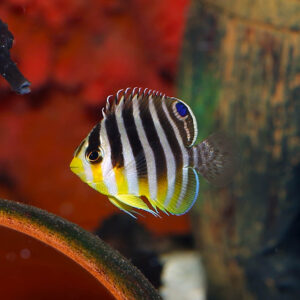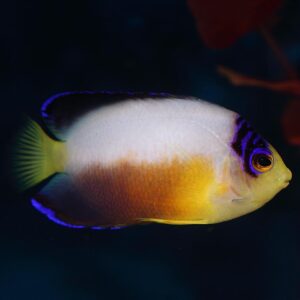Fireball Angelfish, Centropyge acanthops, also go by the name Orange Back Angelfish. These fish are attractive dwarf angels that make great additions to marine tanks. Their heads and dorsal are a gorgeous bright orange colour that gives the fish its name. This nicely frames their deep blue bodies. They are perfect for anyone looking to add activity and colour in their aquarium.
These Angelfish belong to the Pomacanthidae family. A group famous for their vivid colours. The name is Greek for, “cover” (poma) and “thorn” (akantha), which refers to the pair of strong spines on the gill cover.
Fireball Angelfish, Centropyge acanthops, Ecology.
These fish occur in the Western Indian Ocean. They live around: South Africa, East Africa and Somalia. They form small groups in amongst coral and rubble. Here they graze on algae and hunt invertebrates.
Fireball Angelfish are also protogynous hermaphrodites. Meaning they start life as female and turn male when they become the most dominant in their group. Although, these fish are also able to reverse this change. Males instigate spawning by nudging the female’s abdomen.
Orange Back Angelfish In the Aquarium.
It is important to have plenty of nooks or crannies where your Fireball Angelfish can explore and feel at home. Keepers may also want to get a jump guard to stop any accidents.
Fireball Angelfish are omnivores and do best when fed a varied diet. They will accept frozen Mysis shrimp and enriched frozen brine shrimp. We enrich all our frozen food with seachem garlic guard and Atvitol vitamins. These are great for keeping fish healthy by providing them with the nutrition otherwise lost in frozen food. In doing so, these additives support their immune system and increase longevity.
Fireball Angelfish will eat masstick and graze on marine algae, that can be secured to the side of the tank with clips. Over time they will accept high-quality pellet or flake. We adapt all our Angel Fish to aquarium life before they leave us. We focus on their health, and most are eating a good quality flake food and/or pellet before being offered for sale.
Dwarf Angelfish can live in a mixed group or alone. It may also be possible for them to be pairs but a few variables need to be considered. Feel free to give us a call with any questions on this matter.





Reviews
There are no reviews yet.